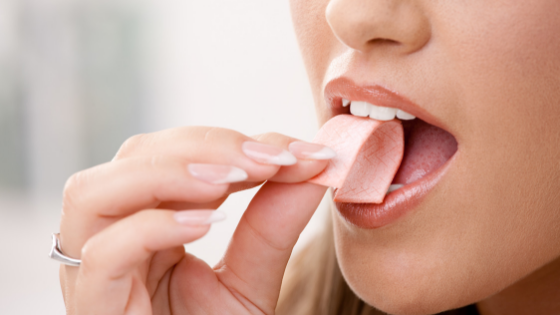How Not Eating Can Give You Bad Breath

Did you know that skipping a meal can give you bad breath? Not only does it leaving you feeling hungry, but it may contribute to some foul smelling breath. Is there anything worse than bad breath? Sometimes just throwing a mint in your mouth won’t solve the problem—you need to get to the source of the bad smell. There are many different causes for bad breath, but what has been come to known as “hunger breath” is a little-known one.
Hunger Breath
The food we eat is turned into energy. This is why you feel weak if you go too long without eating. When you don’t eat regularly, your body will use an energy reserve to function—this is when we burn fat. Burning fat involved release ketone, which produces a foul smell. This unpleasant scent is usually released from the body through our breath. It happens when our bodies are deprived of food, hence the term “hunger breath.”
A dry mouth can also lead to bad breath and dry mouths are much more common when you aren’t eating for drinking. Salvia is produced when you are eating or drinking. The saliva in your mouth helps to control your breath with some fluid consistency and pH. It washed away food particles, keeps sulfur compounds under control, and works as a natural agent to fight bad breath.
A dry mouth with little salvia means a stagnate mouth with bad breath. Going too long without eating lowers your salvia production and flow. The lower the flow gets, the drier your mouth and the worse your breath. This is why most people wake up with “morning breath” because they go all night without eating or drinking and they wake up with a dry mouth.
How to Get Rid of It
There are a few ways you can combat hunger breath, morning breath, and all around bad breath. The obvious solution is to eat regularly—you could eat small portions more often and enjoy small snacks between meals.
If that doesn’t work for your diet, you can also try drinking more often. Water will flush out food particles and help produce salvia. You can also try chewing gum or sucking on mints—both of which will help produce salvia and could leave a minty taste in your mouth.
Anything that produces salvia production will help you avoid odorous breath.
Maintain good oral hygiene will also be a big help. Flossing out food particles and brushing with fluoride will help you maintain good health and keep your breath smelling good.
Brushing after each meal will help you remove any food particles left behind from your meal. Or if you don’t have access to a toothbrush, you can swish some water around in your mouth.
You should also see a dentist every six months for proper cleaning and checkup. Cavities are tooth decay which can also lead to bad breath. Get those taken care up quickly, keep up with good oral practices, eat and drink regularly, and enjoy fresh breath!
